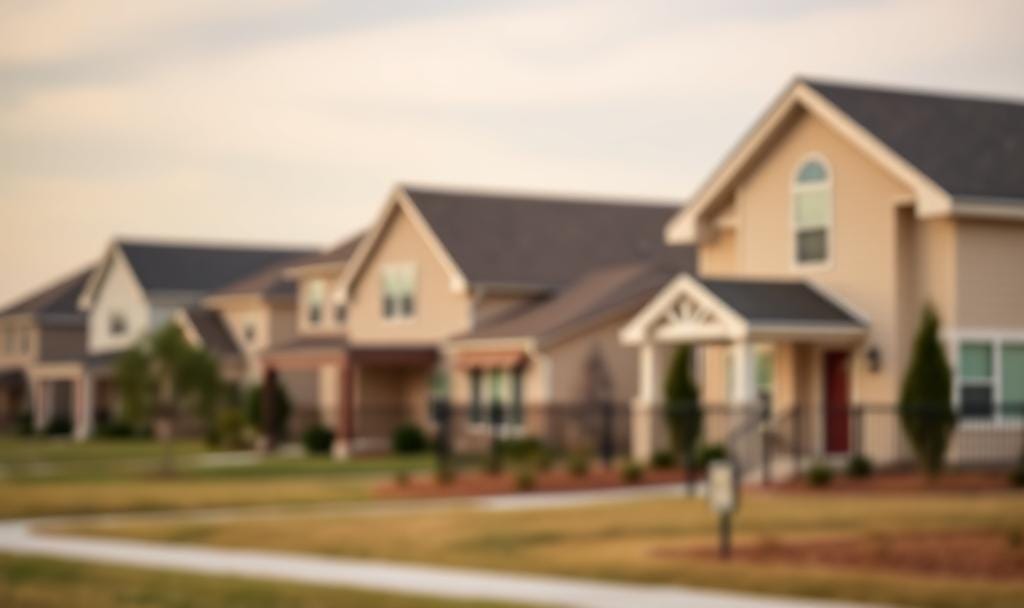EPIC Update: Justice Department Launches Investigation into Texas Muslim Housing Development Amid Political Backlash
Federal Probe Announced as Texas Republicans Target EPIC City Project Near Dallas

The U.S. Department of Justice has opened an investigation into a proposed housing development near Dallas, Texas, featuring a mosque at its center, following months of escalating scrutiny and political controversy. The inquiry, disclosed Friday by Senator John Cornyn, comes after Texas Republican leaders, including Governor Greg Abbott and Attorney General Ken Paxton, raised allegations that the project, known as EPIC City, could violate state and federal laws and foster an exclusively Muslim enclave in the rural community of Josephine.
EPIC City, A Vision and a Flashpoint
EPIC City, backed by members of the East Plano Islamic Center (EPIC), is planned as a master-planned community featuring approximately 1,000 homes, a mosque, community center, school, and hospital. The project, situated about 20 miles from Josephine, has drawn national attention for its ambition and the backlash it has provoked from Texas’s Republican leadership.
Governor Abbott has repeatedly condemned the initiative, alleging it aims to impose Islamic law, Sharia, on residents and create a “Sharia city.” Abbott has directed multiple state agencies to investigate the project for potential violations of fair housing and financial regulations. He has accused the Islamic center of conducting illegal funeral services on its premises.
Attorney General Ken Paxton has launched a criminal investigation, while Senator Cornyn, now preparing for a potentially contentious Republican primary against Paxton, has called for federal intervention. Cornyn stated on social media, “Religious discrimination and Sharia Law have no place in Texas. Any breaches of federal law must be promptly prosecuted”.
Developers and Legal Team Deny Wrongdoing
Leaders of the East Plano Islamic Center have categorically denied all allegations, emphasizing that EPIC City is not intended to be a Muslim-only community and that the project is open to all. An EPIC attorney, Dan Cogdell, rejected the accusations as baseless and politically motivated. “EPIC has committed no illegal acts, and we will fully cooperate with any investigations,” Cogdell said, urging Senator Cornyn to focus on “real issues rather than getting entangled in fictional ones”.
Construction on the project has not begun, and no building permits have been issued. Prospective residents have been able to reserve lots by placing deposits, but the development remains in the planning stages.
Political and Social Reactions, Misinformation, and Community Response
The controversy has fueled a wave of anti-Muslim sentiment and conspiracy theories in Texas, with critics accusing the project of seeking to establish “no-go zones” and enforce Sharia law, claims that legal experts and civil rights groups have repeatedly dismissed as unfounded. The Southern Poverty Law Center has described anti-Sharia legislation as “one of the most successful far-right conspiracies to achieve mainstream viability” in the United States.
Imam Nadim Bashir, who leads the EPIC mosque, told The New York Times that the backlash stems from misunderstandings of Islamic law and the project's intentions. “It’s a personal moral code of life, that’s all,” Bashir explained. “Standing up for people, serving people, taking care of your family, being honest, this is all part of Shariah.” He emphasized that the mosque and its community have always respected U.S. and Texas laws.
Despite the negative attention, the EPIC community has received support from local faith leaders, including Andy Odom, a neighboring Presbyterian pastor. Odom described the mosque’s members as “the best neighbors to everyone around them,” while acknowledging some local concerns about the scale of the proposed development.
Broader Context, Texas’s Demographic Shifts and Political Climate
The Dallas-Fort Worth metro area has experienced rapid growth and diversification, with its population rising by over 60% in the past two decades. The region now includes a vibrant mix of newcomers worldwide, including a growing Muslim community. The East Plano Islamic Center has been a fixture in the area for 20 years, providing religious services, food banks, mobile medical care, and emergency warming centers.
Despite this, the EPIC City project has become a lightning rod for anti-Muslim rhetoric, echoing past controversies over mosque construction and Islamic centers elsewhere in the United States. The current backlash is reminiscent of the opposition to the “Ground Zero mosque” in New York City and reflects persistent anxieties about religious pluralism in American society.
Investigations and Legal Maneuvering
The state’s investigations have included allegations that the mosque operated a funeral home without a license, leading to a cease-and-desist order from the Texas Funeral Service Commission. EPIC has since halted funeral services and has always sought to comply with all applicable laws.
Senator Cornyn’s calls for a Justice Department probe add a new layer of scrutiny. Federal investigators are now tasked with determining whether the project or its developers have engaged in religious discrimination or violated any federal statutes. As of Friday, the Justice Department had not issued a public response.
Unresolved Questions and Community Resilience
The outcome of the investigations, state and federal, remains uncertain. The EPIC City project has not broken ground, and its future may hinge on the results of these legal reviews and the broader public debate. For now, the controversy has highlighted deep divides in Texas over religious freedom, demographic change, and the role of faith-based communities in local development.
Reflecting on the backlash, Imam Bashir called for dialogue and understanding: “If you have questions about our faith, come to us, sit with us, and we’ll provide answers.” As Texas grows and diversifies, the EPIC City controversy stands as a test case for how the state navigates questions of inclusion, religious liberty, and community identity.


